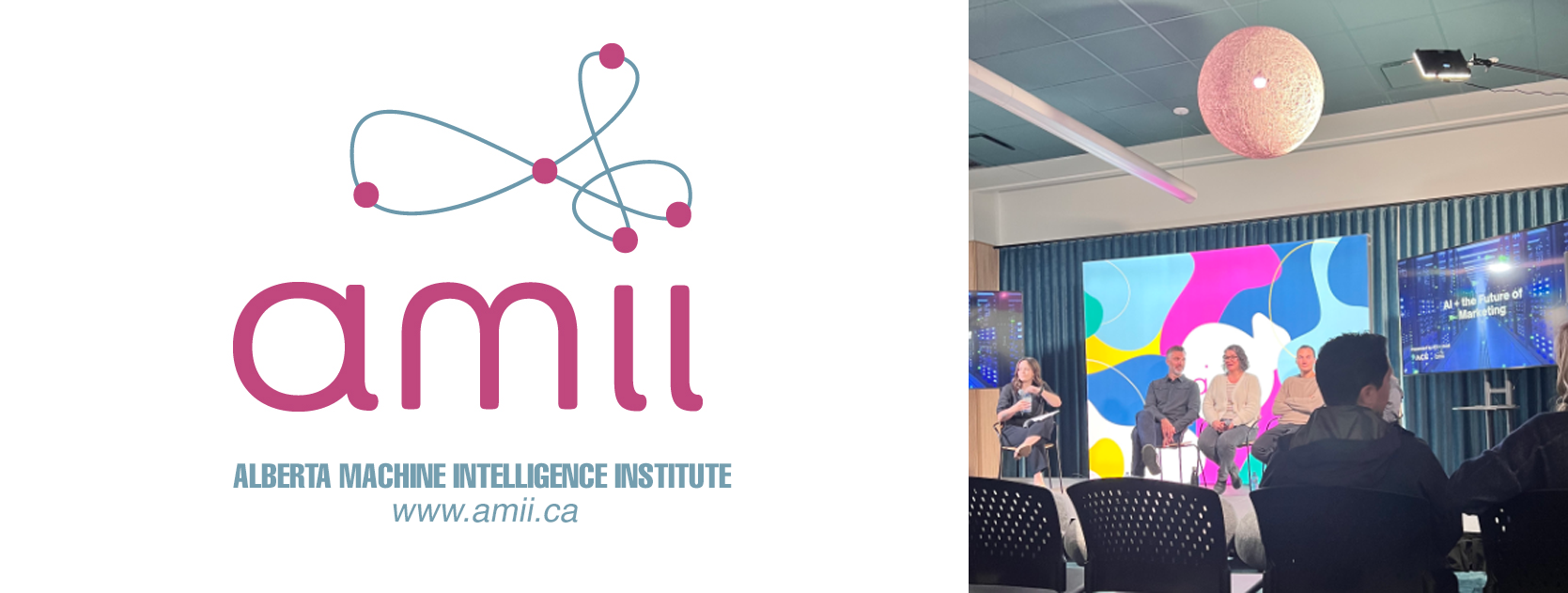 STRATEGY CALL
STRATEGY CALL
The Alberta Machine Intelligence Institute (AMII) recently organized an event exploring the profound impact of Artificial Intelligence (AI) on the future of marketing and communications. The event highlighted the need to approach AI with curiosity rather than viewing it as an obstacle. By leveraging AI technologies, marketers can unlock new opportunities and enhance their strategies to drive engagement, personalization, and efficiency. Let’s delve into our key takeaways from the event and discuss the potential of AI in shaping the future of marketing and communications. To learn more about how we’re embracing AI, call Smart WSI Marketing today.
It’s important to recognize that the use of AI in both our industry, and our every day lives at this point, is not new! Siri and Alexa, anyone? We’ve been using various AI technologies to assist us with repetitive and tedious tasks in both the home and workplace for a while now. Here are some examples:
It’s all over the place, and we don’t even think about it anymore. What is new, and on all of our minds now, is generative AI.

Generative AI is an AI model that can actually generate different types of content, such as text, images, and video, in response to prompts that are given to it. This differs from the older models we are familiar and comfortable with that analyzed existing data to make predictions. Those types of AI are classified as predictive AI. While both or powered by machine learning, their core functionality is different.
Currently, marketers are actively experimenting with generative AI to amp up their efforts. Additionally, they are building AI tools to prompt ChatGPT, enabling personalized eCommerce shopping sessions to promote conversions and reduce cart abandonment rates.
One of the notable aspects of generative AI is its ability to emulate human capabilities. Through machine learning, these AI systems learn from data and make predictions, leading to more accurate and targeted marketing campaigns. For instance, AI plays a crucial role in optimizing Google Ads by determining the ideal positioning for keywords and bids.
AI's potential in marketing extends beyond its current applications. It is increasingly being leveraged for content creation, image generation, and background fills. This allows marketers to streamline their creative processes, freeing up more time for editing, iterating, and perfecting their content.
Despite its remarkable capabilities, generative AI can evoke fear and skepticism. However, it is essential to remember that generative AI is designed to enhance human potential, not replace it. AI tools like ChatGPT are particularly beneficial for individuals who struggle with writing, generating ideas, or overcoming writer's block. They can be used as personal assistants for students, enabling them to adopt the roles of editors and writers rather than just to replace writers. To simplify: AI tools are tools to help people, not replace people.
Fact-checking remains a critical aspect of using AI tools. While generative AI can appear confident and provide references, it is crucial to
exercise caution and fact-check information independently. Using prompt libraries and relying on proven techniques rather than reinventing
the wheel can greatly benefit marketers and accelerate their workflow.

As generative AI continues to evolve and integrate into marketing practices, certain challenges need to be addressed. Choosing the right AI tools, navigating complex tech stacks, integrating systems seamlessly, and dealing with legal complexities can be overwhelming. It is important to stay informed, research legal policies, and prioritize the responsible use of AI to avoid potential legal issues.
Ethical considerations are also critical. AI experts have raised concerns regarding manipulation, addiction, misinformation, and the growing difficulty of distinguishing real from generated images and videos. However, it is important to recognize that AI technology is ethically neutral—it is the people who use AI that determine its moral impact. People have the choice whether to use it for “good” or for “evil.” Education and critical thinking will play crucial roles in mitigating the risks associated with generative AI and ensuring its responsible use.
As AI continues to advance, it will inevitably impact various job roles, both low and high skill. However, rather than being a threat, this presents an opportunity to embrace new ideas and explore innovative possibilities. The evolution of technology has consistently brought about changes, and adapting to these changes has been essential throughout history. The future will require AI literacy, continuous learning, and a willingness to explore and use AI tools effectively.
There are few ways we are already embracing generative AI at our agency, including:

This AMII event highlighted the immense potential of AI in transforming the future of marketing and communications. By embracing generative AI with curiosity and a responsible mindset, marketers can unlock new heights of creativity, productivity, and personalization. While challenges and ethical concerns certainly do exist, they can be addressed through education, critical thinking, and the development of ethical and unbiased AI systems. As the world evolves, it is crucial to adapt, innovate, and harness the power of AI to reshape the way we engage with our audience and drive marketing success. To learn more about how we are leveraging AI and how your business can embrace it too, call Smart WSI Marketing!



